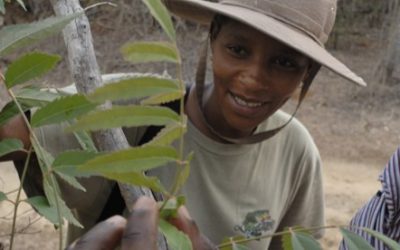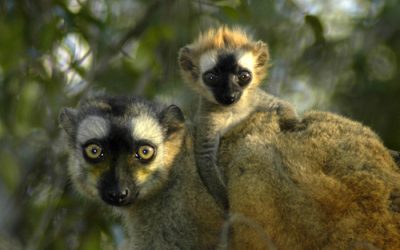Ghanaian herpetologist, Caleb Ofori (2007 Kibale course) has won a prestigious Future for Nature Award 2014 for his contribution to research and conservation of frogs and their environment in Ghana. The award supports young, talented conservationists who are committed to protecting biodiversity and to making a difference for the future of nature.
TBA is delighted by the news, having nurtured Caleb’s career journey over the years, and supported his application for this award. Director Dr. Rosie Trevelyan said that Caleb was a deserving winner: the award recognises not only Caleb’s passion, but also his outstanding contribution to research and conservation of frogs in Ghana.
An excited Caleb wrote to us saying: “I am truly thrilled by this award and at the same time feel a great sense of responsibility to make a lasting impact on species conservation and to inspire others to do the same”. What an excellent way to express what TBA is all about — inspiring people and creating conservation leaders who can really make a difference in their fields!
Caleb — the first Ghanaian biologist to initiate research in frogs — together with other Ghanaian TBA alumni, co-founded ‘Herp Ghana’, a pioneer NGO committed to conserving Ghana’s amphibians and reptiles, and their habitats through research and education. Through a TBA Small grant, Caleb has done research on “Re-discovery of the lost Ghana Worm Lizard, Cynisca kraussi”. Set up in 2012, the project has provided baseline data on the ecology of this endangered reptile and Caleb is determined to help safeguard the lizard’s few remaining habitats.
Besides nurturing his research career, the TBA has significantly influenced Caleb’s academic growth. Soon after his TBA course, Caleb won one of the 3 highly competitive TBA Masters Scholarships on offer in 2008. His MPhil degree in Wildlife Management was later upgraded to a PhD in 2009. This was a well-deserved reward for his exceptional hard work and commitment to nature conservation, which resulted in the discovery of at least two new species to science.



